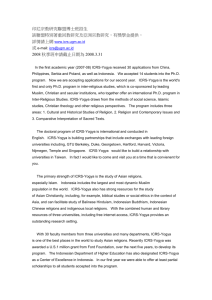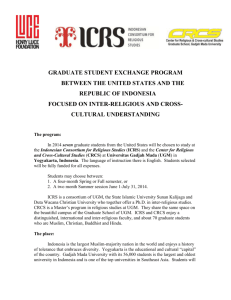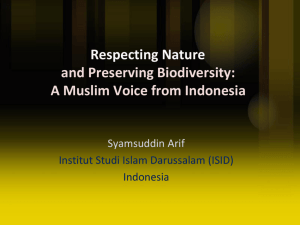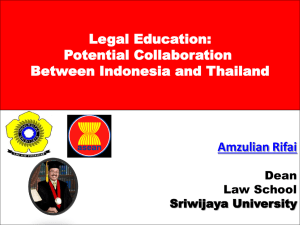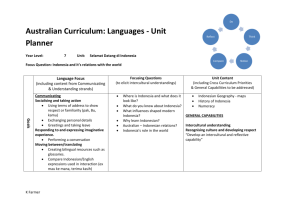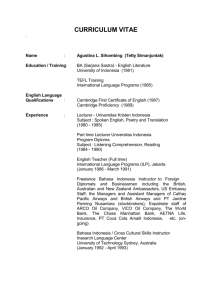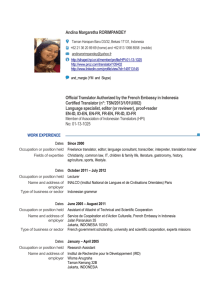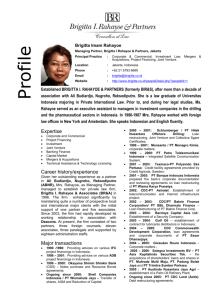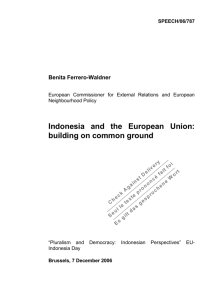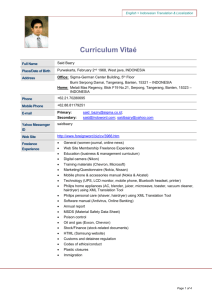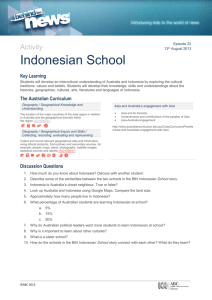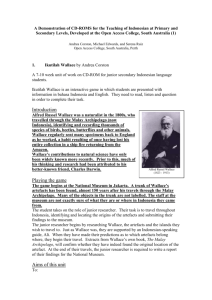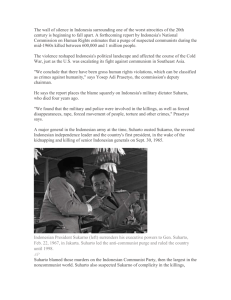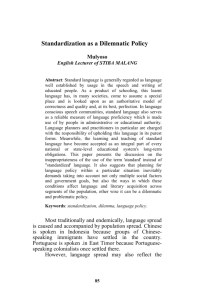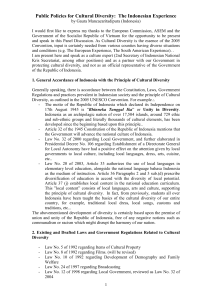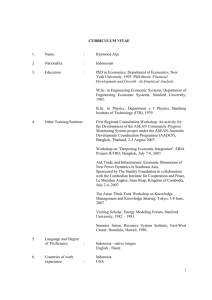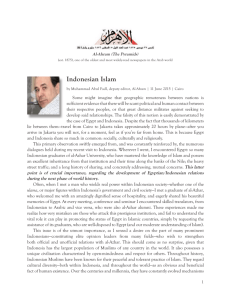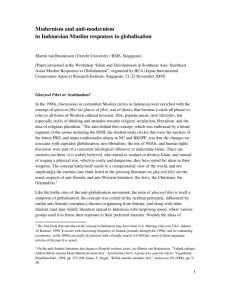As we will require all the Luce students, we ask you to fill in the
advertisement
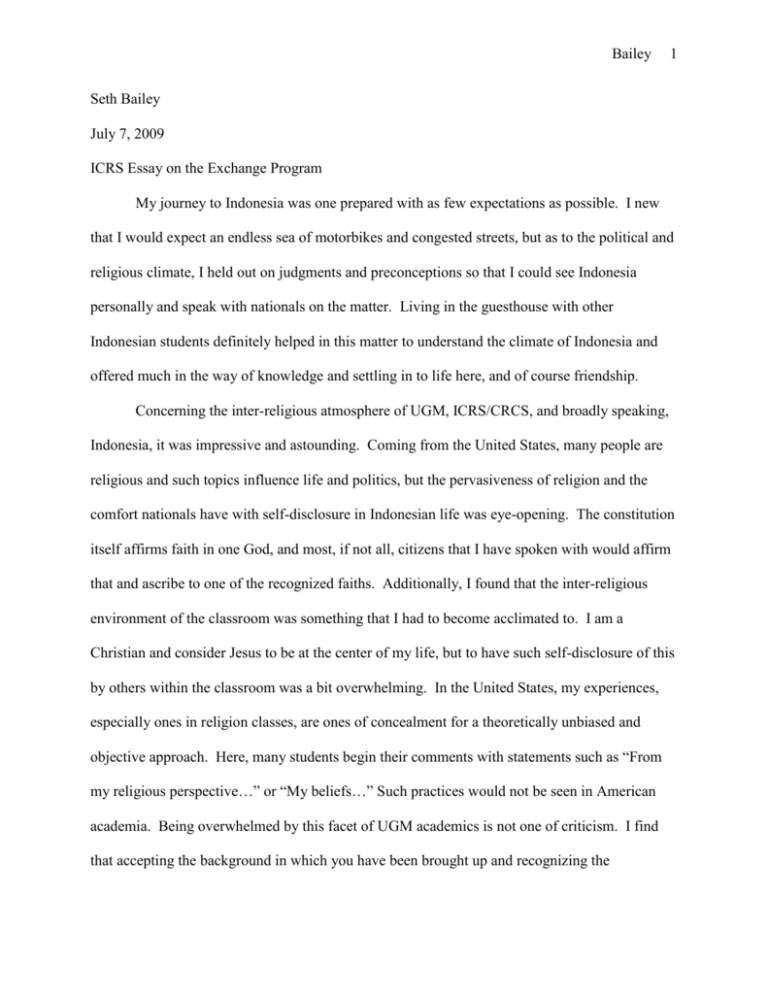
Bailey 1 Seth Bailey July 7, 2009 ICRS Essay on the Exchange Program My journey to Indonesia was one prepared with as few expectations as possible. I new that I would expect an endless sea of motorbikes and congested streets, but as to the political and religious climate, I held out on judgments and preconceptions so that I could see Indonesia personally and speak with nationals on the matter. Living in the guesthouse with other Indonesian students definitely helped in this matter to understand the climate of Indonesia and offered much in the way of knowledge and settling in to life here, and of course friendship. Concerning the inter-religious atmosphere of UGM, ICRS/CRCS, and broadly speaking, Indonesia, it was impressive and astounding. Coming from the United States, many people are religious and such topics influence life and politics, but the pervasiveness of religion and the comfort nationals have with self-disclosure in Indonesian life was eye-opening. The constitution itself affirms faith in one God, and most, if not all, citizens that I have spoken with would affirm that and ascribe to one of the recognized faiths. Additionally, I found that the inter-religious environment of the classroom was something that I had to become acclimated to. I am a Christian and consider Jesus to be at the center of my life, but to have such self-disclosure of this by others within the classroom was a bit overwhelming. In the United States, my experiences, especially ones in religion classes, are ones of concealment for a theoretically unbiased and objective approach. Here, many students begin their comments with statements such as “From my religious perspective…” or “My beliefs…” Such practices would not be seen in American academia. Being overwhelmed by this facet of UGM academics is not one of criticism. I find that accepting the background in which you have been brought up and recognizing the Bailey 2 conceptions you have, you can be more aware of potential biases. The other side of this proverbial coin that I found in actual practice in my comparative mysticism class was that some could not move beyond their own beliefs to view religions from other perspectives or examine their own religion critically. For myself, to view one’s own religion critically took time and thoughtful recognition to realize that critical analysis does not inherently mean criticism. Overall, I must say that attending class in an Indonesian setting was a valuable endeavor in terms of pedagogy and learning by different means. In connection with the inter-religious environment at UGM is the general environment of pluralism seen in Indonesia that pervades most of the culture, whether for or opposed. Many at ICRS work on inter-religious dialogue and I have noticed several conferences being conducted in the region on pluralism and how Indonesia comes to terms with varied intra-religious groups and between different religions. Touring the temples in and around Yogyakarta, seeing the mosques, pesantrans, churches, and Buddhist sites, I found it amazing the relative peace that exists between religions and the desire to live in community with them, though I have heard of violence in Solo and the ongoing debates and battles in the west and east of Indonesia. Furthermore, it is even more amazing the synergies that can be seen between Islam and native Indonesian customs and how such occurrences can exists in Islam. Regarding this matter, I spoke with Dr. Siti Atun using the prime example of the offerings of appeasement made to Mt. Merapi by the Sultan and how it seems to fly in the face of the staunch oneness of Allah. Hearing her answer that it is related to Islamic notions of jinns and Indonesian concepts of spirits made sense and just came to epitomize the mingling and acceptance between the majority of Indonesians and the moderate way of thinking. Bailey 3 As my journey ends here in Indonesia, I will be taking home with me knowledge of Islam and religious pluralism that I had not imagined could exists in a predominantly Muslim country. Firsthand experiences and interactions have been eye-opening and no longer does my framework center solely around an Arab version or tradition of Islam. Only coming to Indonesia would such newfound knowledge have been obtained, and I hope it adds to what will later become my thesis with respect to Islam.
